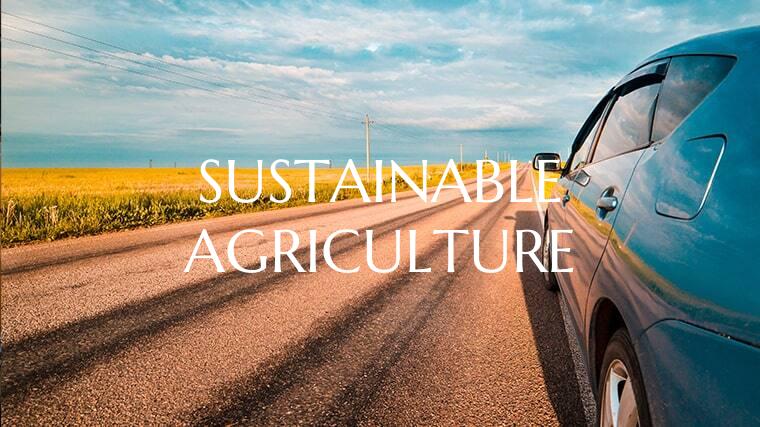SUSTAINABLE AGRICULTURE
Introduction: Sustainable agriculture is an essential approach that focuses on producing food in a way that protects the environment, mitigates climate change, and ensures long-term food security. This method aims to meet the needs of the present without compromising the ability of future generations to meet their own needs. By adopting sustainable agricultural practices, farmers can protect natural resources, enhance biodiversity, and improve the livelihoods of rural communities.
Practices of Sustainable Agriculture:
1. Crop Diversity: Growing a variety of crops helps in preventing soil erosion, controlling pests and diseases, and improving soil fertility. Crop rotation and intercropping are common practices that promote diversity in agricultural systems.
2. Soil Health Management: Practices such as conservation tillage, cover cropping, and the use of organic fertilizers help in maintaining soil health and fertility. Healthy soils not only support plant growth but also store carbon, contributing to climate change mitigation.
3. Water Conservation: Irrigation methods like drip irrigation and rainwater harvesting reduce water waste and promote efficient water use in agriculture. Water conservation is crucial for sustainable agriculture, especially in regions facing water scarcity.
4. Agroforestry: Integrating trees and shrubs into farmland can provide additional income streams, improve soil structure, and enhance biodiversity. Agroforestry systems offer multiple benefits such as carbon sequestration, erosion control, and habitat for beneficial insects.
5. Integrated Pest Management (IPM): IPM strategies focus on minimizing the use of chemical pesticides by employing biological controls, crop rotation, and pest monitoring. This approach helps in managing pest populations effectively while reducing environmental impact.
Benefits of Sustainable Agriculture:
1. Environmental Conservation: Sustainable agriculture practices promote biodiversity, protect soil and water resources, and reduce greenhouse gas emissions. By conserving natural ecosystems, sustainable farming contributes to environmental preservation and climate change mitigation.
2. Economic Resilience: Adopting sustainable practices can improve farm profitability in the long run by reducing input costs, enhancing soil fertility, and diversifying income sources. Farmers practicing sustainable agriculture are better equipped to adapt to changing market conditions and climate impacts.
3. Social Equity: Sustainable agriculture supports local communities by creating employment opportunities, preserving traditional farming knowledge, and promoting fair trade practices. Empowering smallholder farmers through sustainable practices can help alleviate poverty and enhance food security.
Conclusion: Embracing sustainable agriculture is crucial for building a resilient and equitable food system that meets the needs of current and future generations. By implementing practices that promote environmental stewardship, economic viability, and social well-being, farmers can contribute to a more sustainable and food-secure future. It is imperative for policymakers, stakeholders, and consumers to support and promote sustainable agriculture to ensure a healthy planet and thriving agricultural communities.
